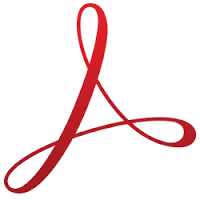Description

DigiSigner

eSignly
Comprehensive Overview: DigiSigner vs eSignly
DigiSigner Overview
a) Primary Functions and Target Markets
DigiSigner is an electronic signature software designed to provide secure and legally binding signatures for documents. Its primary functions include:
- Digital Signing: It allows users to sign documents online quickly and securely.
- Document Management: Users can manage documents needing signatures easily through the platform.
- Compliance: Ensures that signatures are legally binding and comply with electronic signature laws such as eIDAS in the EU and ESIGN Act in the US.
Target Markets:
- Small to Medium Enterprises (SMEs): Particularly those looking for a cost-effective and straightforward solution for document signing.
- Freelancers and Individual Professionals: Who require regular contract signings but do not need extensive enterprise-level features.
b) Market Share and User Base
DigiSigner is a smaller player in the overall e-signature market, competing with larger companies like DocuSign and Adobe Sign. Its share of the market is growing, particularly among SMEs and startups due to its simplicity and cost-effectiveness. The user base is comparatively smaller but dedicated, often valuing the focus on essentials without the added complexity.
c) Key Differentiating Factors
- Price Point: DigiSigner is generally more affordable, making it attractive to smaller businesses and individual users.
- Ease of Use: The platform is designed with simplicity in mind, focusing on core e-signature functionalities without overwhelming users with excessive features.
- Customization: Offers some customization for branding and integrating with various systems depending on user needs.
eSignly Overview
a) Primary Functions and Target Markets
eSignly is another electronic signature solution that enhances the efficiency of signing documents and agreements digitally. Key functions include:
- Electronic Signatures: Streamlined solution for signing documents online.
- Integration Capabilities: It offers integrations with popular tools and platforms, enhancing productivity.
- Security and Compliance: Provides secure and compliant digital signatures suitable for global business needs.
Target Markets:
- Enterprise Businesses: Seeking scalable solutions that can integrate with existing business processes.
- Industries with Regulatory Requirements: Such as healthcare, finance, and legal sectors where compliance is crucial.
b) Market Share and User Base
eSignly is also a niche player with a focus on compliance-heavy industries. Its market share is modest, but it tends to attract businesses that need more robust security features and compliance assurances. User base includes larger corporations and industries that value integration with other enterprise systems.
c) Key Differentiating Factors
- Integration and Scalability: eSignly provides extensive integration options with enterprise software, making it more attractive for larger organizations.
- Industry-Specific Solutions: Offers tailored solutions for industries that require special compliance measures.
- Security Features: Enhanced security measures making it suitable for industries that are highly sensitive to data protection.
Comparative Summary
DigiSigner and eSignly, while both providing fundamental e-signature functionality, cater to different segments of the market. DigiSigner appeals to smaller businesses and individual users due to its simplicity and affordability, focusing on core functionalities without additional complexities. In contrast, eSignly is geared more towards enterprise-level clients and industries requiring stringent security and compliance, benefitting from its focus on integration and customization. Both tools are effective within their niches but differ significantly in market approach and user base size.
Contact Info

Year founded :
Not Available
Not Available
Not Available
Germany
http://www.linkedin.com/company/digisigner-gmbh

Year founded :
2011
+1 908-460-1084
Not Available
United States
http://www.linkedin.com/company/esignly
Feature Similarity Breakdown: DigiSigner, eSignly
Feature Similarity Breakdown for DigiSigner and eSignly
a) Core Features in Common
-
Electronic Signatures: Both DigiSigner and eSignly offer electronic signature capabilities, allowing users to sign and send documents electronically.
-
Document Management: They provide features for uploading, organizing, and storing documents securely on the platform.
-
Template Creation: Users can create templates for frequently used documents to streamline the signing process.
-
Audit Trails: Both services maintain detailed audit logs to track every action taken on a document, ensuring compliance and security.
-
Multi-platform Support: Both tools are accessible via web browsers and are compatible with major operating systems, such as Windows, macOS, and iOS/Android for mobile access.
-
Security Features: They implement high-level security features, such as SSL encryption, to protect data integrity and confidentiality.
-
Notifications and Reminders: Automatic notifications and reminders can be set up to alert signers regarding pending actions.
-
Integration Capabilities: They offer integrations with other applications like cloud storage solutions (e.g., Google Drive, Dropbox) and business tools (e.g., CRM systems).
b) User Interface Comparison
-
DigiSigner: DigiSigner’s interface is clean and straightforward, focusing on ease of use for its basic signature functionalities. The design is minimalist, which appeals to users looking for a simple and intuitive signing experience without a cluttered interface.
-
eSignly: eSignly also offers a user-friendly interface but tends to include more aesthetic elements and customization options which might appeal to users who prefer a more visually engaging experience. Some users might find the additional options advantageous for customizing their workflow environment.
c) Unique Features
-
DigiSigner:
- API and Developer Tools: DigiSigner provides a robust API that developers can use to integrate electronic signing functionalities directly into their software applications, which is particularly useful for businesses looking to embed these capabilities into their existing systems.
- Bulk Sending: Allows users to send documents to a large number of recipients simultaneously.
-
eSignly:
- Biometric Authentication: eSignly offers advanced biometric authentication features that provide an additional layer of security.
- Custom Branding: eSignly allows businesses to carry their brand throughout the signing process by customizing the signer's interface, which can include logos and color schemes.
In conclusion, while DigiSigner and eSignly share many core features, their user interfaces and unique offerings cater to slightly different needs. DigiSigner leans towards more straightforward, developer-friendly solutions, whereas eSignly focuses on enhanced security features and branding customization options.
Features

Document Signing Made Simple
Secure and Confidential
Efficient Workflow Integration

Easy Document Management
Secure Signing Process
Compatibility and Integration
Seamless Collaboration
Best Fit Use Cases: DigiSigner, eSignly
When comparing electronic signature solutions like DigiSigner and eSignly, it's important to consider the specific features, pricing, and ease of use that cater to different types of businesses, industries, and project needs. Here's a breakdown to help identify the best fit use cases for each platform:
DigiSigner
a) For what types of businesses or projects is DigiSigner the best choice?
-
Small to Medium Enterprises (SMEs):
- DigiSigner is a cost-effective solution ideal for small to medium-sized businesses that need a straightforward, reliable, and secure e-signature tool without extensive additional features.
-
Startups and Freelancers:
- Startups and freelancers often require simple solutions that integrate easily into existing workflows. DigiSigner offers basic features that are easy to use, making it suitable for individuals and small teams.
-
Businesses with Moderate Signature Volume:
- Organizations with a relatively low to moderate number of monthly signing needs can benefit from DigiSigner’s pricing plans.
-
Projects Emphasizing Security:
- Given its focus on security and compliance, businesses that prioritize document security such as legal firms, HR departments, and finance teams may find DigiSigner appealing.
d) How does DigiSigner cater to different industry verticals or company sizes?
- Industries:
- Legal, finance, HR, and any industry where compliance and security are key due to DigiSigner's adherence to encryption standards and legal compliance.
- Company Sizes:
- Primarily targets small to medium-sized businesses due to its simplicity and affordable pricing tiers, which cater to companies without extensive e-signature needs.
eSignly
b) In what scenarios would eSignly be the preferred option?
-
Enterprises with High Volume Needs:
- eSignly is suitable for larger organizations that deal with a high volume of documents requiring signatures and need a robust, scalable solution.
-
Organizations Needing Advanced Features:
- Companies that need more than basic e-signature capabilities, such as document management, customizable workflows, and integrations with other software systems, may prefer eSignly.
-
Remote and Distributed Teams:
- eSignly’s capabilities make it well-suited for companies with remote teams that need to streamline their document signing process across multiple locations.
-
Businesses Prioritizing User Experience:
- For businesses that seek a user-friendly interface and require minimal training for adoption, eSignly provides an intuitive platform.
d) How does eSignly cater to different industry verticals or company sizes?
-
Industries:
- Healthcare, real estate, insurance, and sectors where document management and automation are crucial, benefiting from eSignly’s advanced features and integrations.
-
Company Sizes:
- While it can serve businesses of all sizes, it particularly benefits larger enterprises and organizations with diverse and complex e-signature requirements.
In summary, DigiSigner is often the go-to for smaller businesses that need a simple yet secure solution. In contrast, eSignly is more appropriate for larger organizations or those needing additional features and flexibility to handle high volumes of document processing. Both platforms cater to various industries but focus on providing scalability, security, and integration to support their respective target audiences.
Pricing

Pricing Not Available

Pricing Not Available
Metrics History
Metrics History
Comparing teamSize across companies
Conclusion & Final Verdict: DigiSigner vs eSignly
To draw a conclusion and final verdict on DigiSigner and eSignly, it's essential to evaluate them based on key factors such as pricing, features, user experience, security, and customer support.
Conclusion:
a) Best Overall Value:
-
DigiSigner generally offers a competitive edge for small to medium-sized businesses looking for a straightforward e-signature solution at an affordable price. It is especially beneficial for those who prioritize a user-friendly interface and essential signing features without the need for extensive integrations or customizations.
-
eSignly tends to cater to users requiring more extensive functionality and integration options. It might be a better fit for larger organizations or those with industry-specific needs, offering potentially greater scalability and a more comprehensive feature set.
Overall, the best value depends on the user's specific needs. If simplicity and cost-effectiveness are primary concerns, DigiSigner is likely the better choice. However, for users needing more robust features and integrations, eSignly offers better value.
b) Pros and Cons:
DigiSigner Pros:
- Affordability: Lower cost makes it attractive for smaller businesses or individual users.
- Ease of Use: Simple and intuitive user interface.
- Basic Features: Provides essential e-signature capabilities without unnecessary complexities.
DigiSigner Cons:
- Limited Features: May not support advanced needs like extensive custom workflows or API integration.
- Scalability: Less suitable for larger organizations with complex requirements.
eSignly Pros:
- Feature-Rich: Offers a comprehensive set of features including integration capabilities.
- Scalability: Designed to cater to larger businesses or operations with more demanding needs.
- Customization Options: Ability to tailor the solution to specific organizational requirements.
eSignly Cons:
- Higher Cost: Generally more expensive, which might not be justified for simple use cases.
- Learning Curve: More features can lead to a steeper initial learning curve for new users.
c) Recommendations:
-
Identify Primary Needs: Users should start by clearly defining their needs and priorities. If the requirement focuses primarily on simple, cost-effective e-signature functionality, DigiSigner is likely adequate. For more feature-loaded solutions, eSignly might be the better fit.
-
Consider User Familiarity: For teams with limited technical expertise or those emphasizing fast deployment and adoption, DigiSigner's simplicity may offer a smoother onboarding process.
-
Budget Considerations: Evaluate the cost-benefit ratio based on expected usage volume and feature utilization. Small enterprises with limited budgets may find more immediate value in DigiSigner, whereas larger enterprises with more resources and requirements could benefit from eSignly’s expansive capabilities.
-
Test the Products: Both offerings may provide free trials or demos. Users should exploit these opportunities to get hands-on experience and determine the best fit for their workflow and team dynamics.
-
Long-term Scalability: Consider future needs and potential for scale. If a business foresees rapid growth and increased digital transaction complexity, starting with eSignly could be more cost-effective in the long run.
Ultimately, the choice between DigiSigner and eSignly should be tailored to the specific use case, budget constraints, and feature requirements of the user or organization.
Add to compare
Add similar companies



